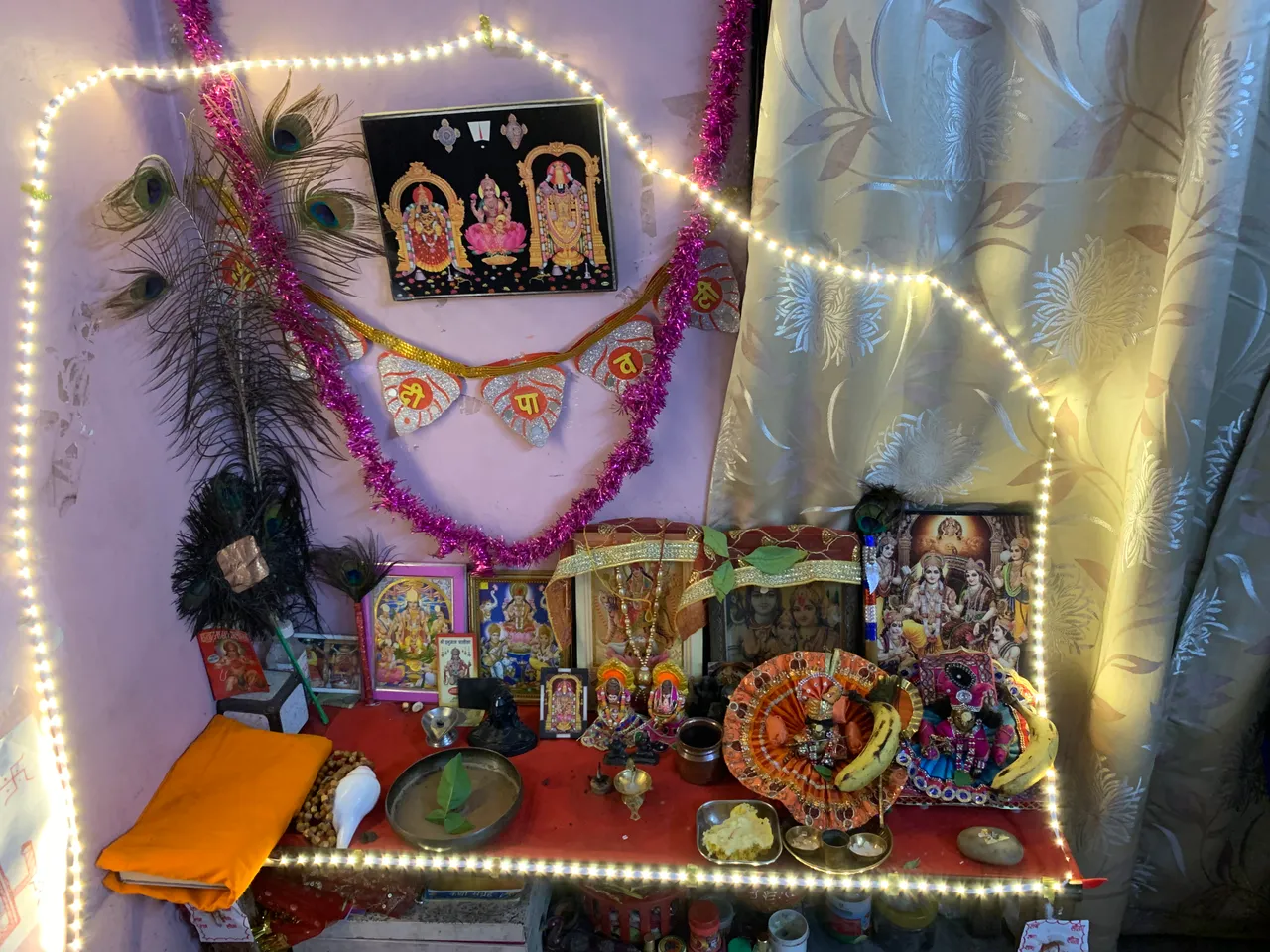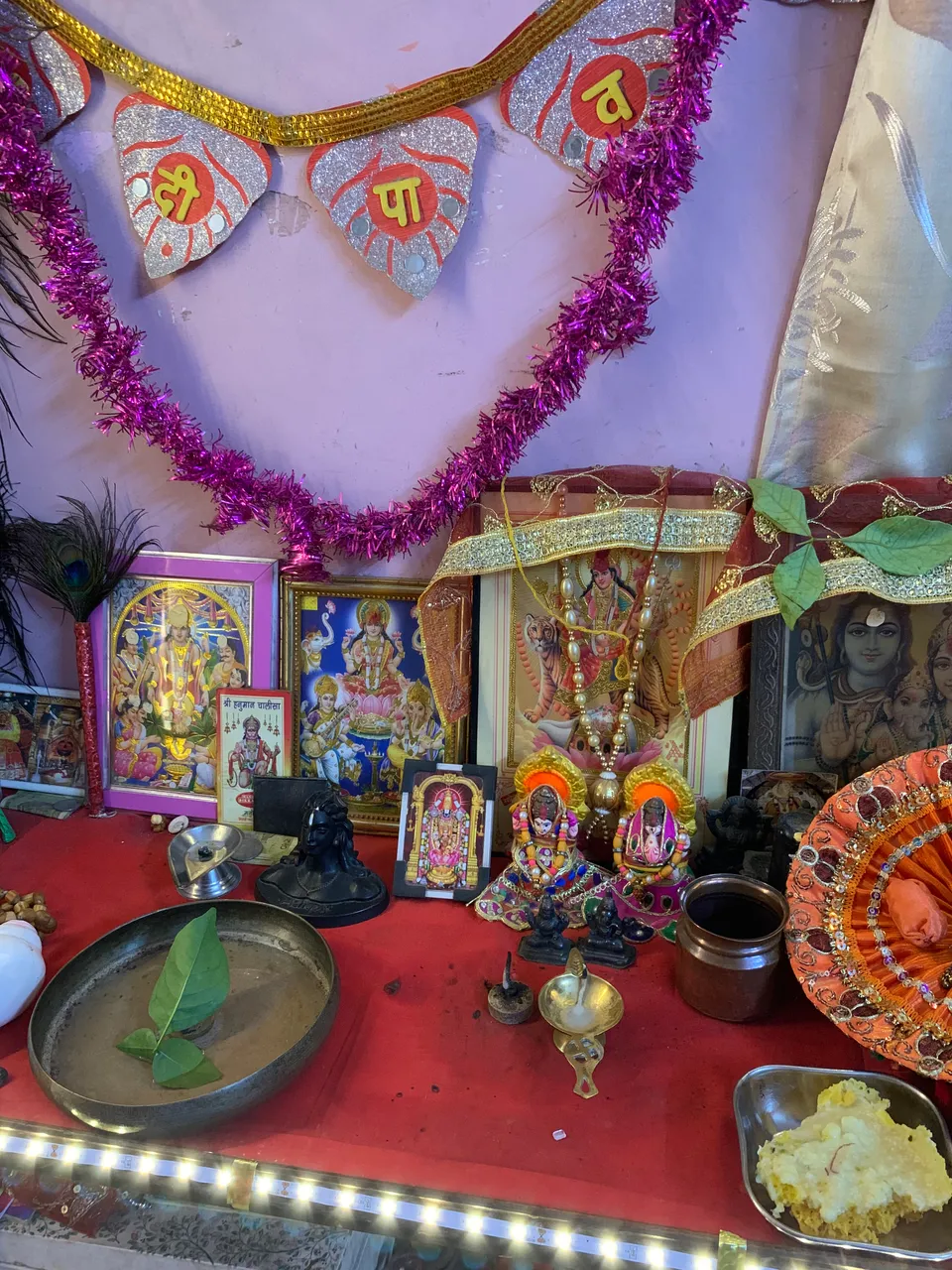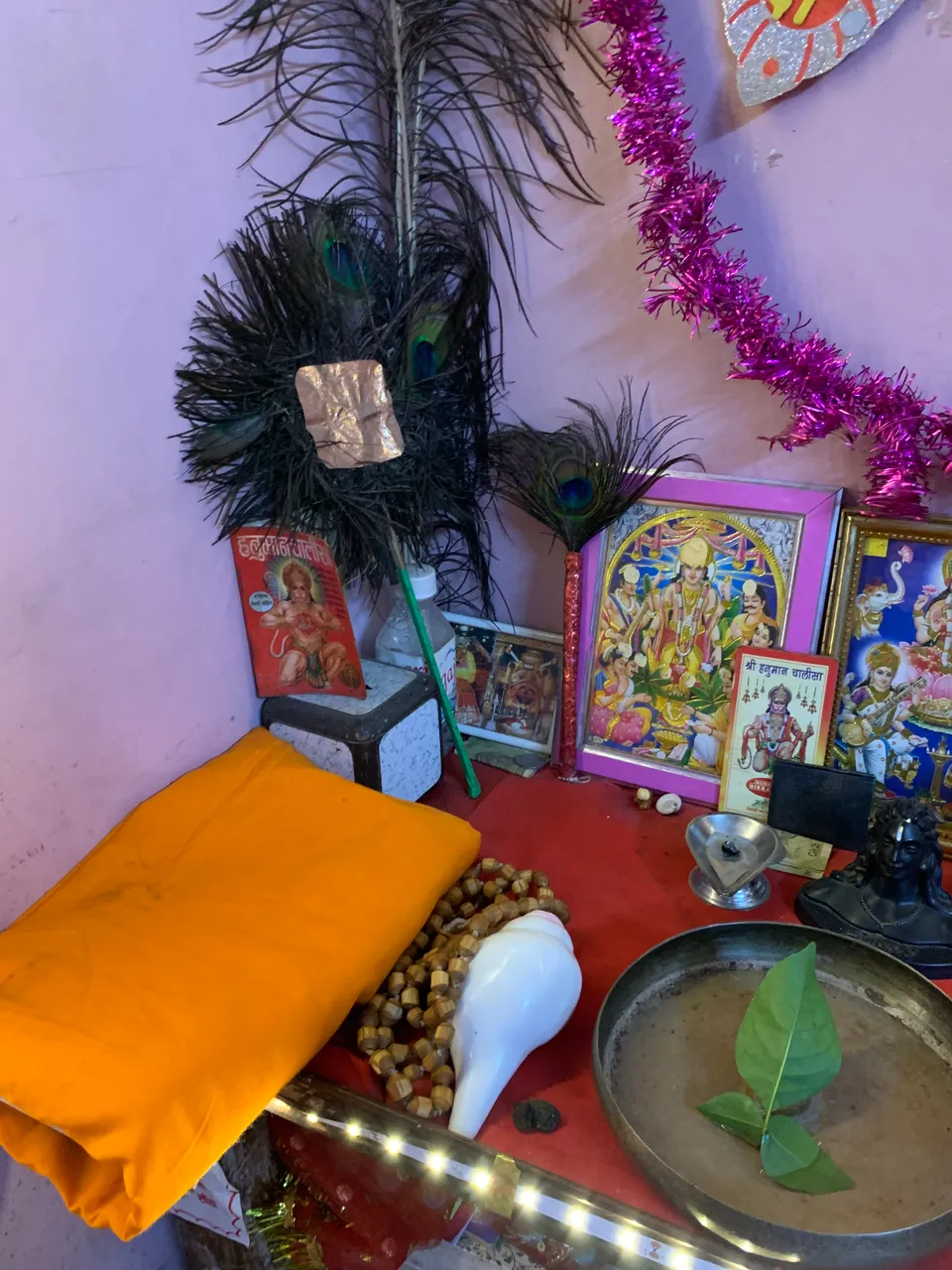Hinduism, one of the oldest religions in the world, is a rich tapestry of gods and goddesses that we pray to for various reasons.
One of the most prominent Hindu gods is Lord Vishnu, the preserver of the universe. Vishnu is often depicted holding a discus, known as the Sudarshana Chakra. This weapon symbolizes the power of time and destruction. Vishnu uses this weapon to maintain cosmic order and harmony, ensuring the balance between good and evil.
Lord Krishna, another avatar of Lord Vishnu, is revered as the divine charioteer and the supreme personality of Godhead. Krishna is often depicted holding a flute, known as the Venu. The flute symbolizes his ability to enchant and attract devotees, captivating their hearts with divine love. It represents Krishna’s melodious nature and his power to create harmony and joy. My mother often visits to Vrindavan once every month, the place where Lord Krishna is believed to have spent his childhood.
Tirupati Balaji, also known as Lord Venkateshwara, considered a form of Lord Vishnu, devotees flock to the temple to seek his blessings for prosperity, wealth, and fulfillment of desires. My father often visits to Tirupati, Andhra Pradesh once every year, for darshan of Venkateshwara.

Lord Ram, the seventh avatar of Lord Vishnu, is revered as the epitome of righteousness and virtue. His life and teachings in the epic Ramayana serve as a guide for moral and ethical living. Lord Ram’s unwavering commitment to truth, justice, and dharma inspires millions to lead a righteous life. He is often depicted holding a bow, known as the Kodanda. It signifies Rama’s ability to uphold dharma and restore order in the world. It represents his strength, determination, and commitment to fighting evil forces.
Goddess Sita, the wife of Lord Ram, is revered as the ideal woman and epitome of purity and devotion. Her unwavering loyalty, resilience, and sacrifice during her exile and subsequent rescue from the demon King Ravana make her an inspiration for women across generations.
Lord Hanuman, the monkey god, is revered for his unwavering devotion and loyalty to Lord Ram. His strength, agility, and intelligence make him an embodiment of courage and devotion. My family often worship Hanuman for protection, strength, and overcoming obstacles. His tales of bravery and selflessness in Ramayana inspire millions to face challenges with determination and faith.

Another significant deity in Hindu mythology is Lord Shiva, the destroyer and transformer. Shiva, with his third eye, represents the eternal cycle of birth, death, and rebirth. He is commonly depicted wielding a trident, known as the Trishula. I often pray to Lord Shiva to seek his guidance in overcoming personal struggles and finding inner peace. His divine presence is believed to cleanse the soul and alleviate suffering, making him a source of solace in times of distress.
Goddess Parvati, the consort of Lord Shiva, represents the divine feminine energy and is worshipped as the goddess of fertility, love, and devotion. She is often depicted as a nurturing mother and a fierce warrior. Parvati’s devotion to Shiva and her role as a loving mother to their children, Ganesha and Kartikeya, symbolizes the different aspects of womanhood.
Lord Ganesh, the elephant-headed god, is widely worshipped as the remover of obstacles and the lord of beginnings. His wisdom and intellect are symbolized by his large head, and his benevolence is depicted through his kind eyes. He is considered the patron of arts, sciences, and learning. My family members often pray to Ganesh whether it is the start of something new, the beginning of an important exam, on Diwali festival or even the initiation of a religious ceremony to find comfort and confidence in facing life’s challenges head-on.
Goddess Lakshmi, the goddess of wealth and prosperity, is worshipped for her blessings of abundance, good fortune, and auspiciousness. Lakshmi is often depicted alongside Lord Vishnu, symbolizing their divine union and the importance of balance between material and spiritual aspects of life. My family often pray to her during the festival of Diwali, lighting lamps, candles, diyas in our houses and offering prayers, hoping for her benevolence to illuminate our lives with wealth and happiness.

Devi Durga, the fierce warrior goddess who symbolizes strength and protection. My family pray to Durga during the festival of Navratri, celebrating her victory over the buffalo demon Mahishasura. She is believed to protect her devotees from evil forces and grant them courage and resilience. Her prayers instill a sense of empowerment and inspire us to fight against justice and oppression.
Whether we seek wisdom, prosperity, protection, or love, Hindu gods and goddesses offer us solace and guidance in our journey through life. So, the next time you pray, remember the divine presence that surrounds you, and let the gods and goddesses of Hinduism be your guiding light.
